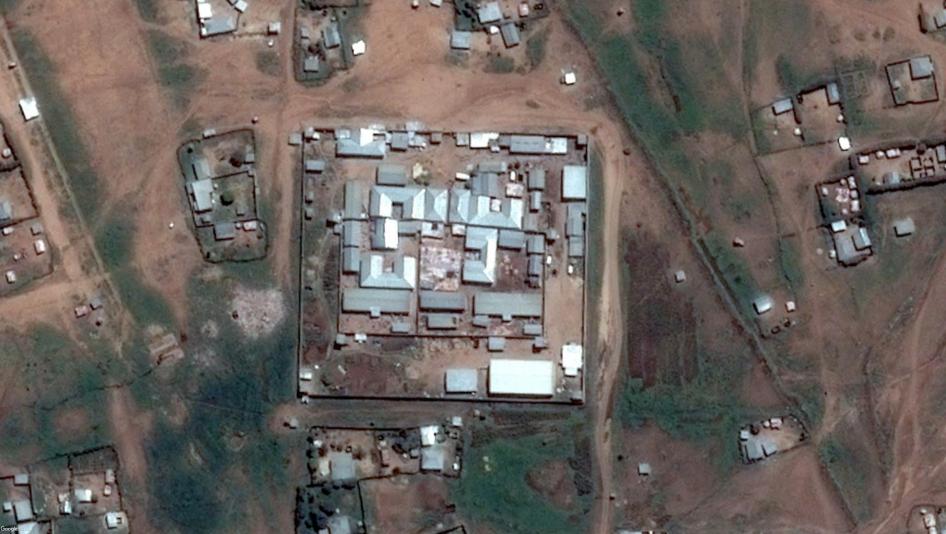Torture and other Abuses in Jail Ogaden, Somali Regional State, Ethiopia

Jijiga Central Prison is home to thousands of prisoners, in the heart of the eastern city of Jijiga who are brutalized and neglected. Many have never been charged or convicted of any crime.
Former prisoners described a horrific reality of constant abuse and torture, with no access to adequate medical care, family, lawyers, or even, at times, food. Officials stripped naked and beat prisoners and forced them to perform humiliating acts in front of the entire prison population, as punishment and to instil shame and fear. In overcrowded cells, head prisoners, called kabbas, beat and harassed prisoners at night during interrogations, passing notes on to prison leaders who then chose some for further punishment. The purpose of the torture and humiliation was to coerce prisoners to “confess” to membership in the Ogaden National Liberation Front (ONLF), a banned opposition group.
This report, based on almost 100 interviews, including 70 former prisoners of Jail Ogaden, documents torture and other serious abuses, including rape, long-term arbitrary detention, and horrific detention conditions in Jail Ogaden in Ethiopia’s Somali Regional State (Somali Region) between 2011 and early 2018. Interviewees also included government officials and members of Somali Region security forces.
The cycle of torture, humiliating treatment, overcrowding, inadequate food, sleep deprivation, and lack of healthcare in Jail Ogaden is consistent with the government’s long-standing collective punishment of people who are perceived to support the ONLF. Human Rights Watch has previously documented how the Ethiopian army committed crimes against humanity and war crimes during counter-insurgency operations against the ONLF in 2007 and 2008, including extrajudicial executions, torture and rape.
Ethiopia’s federal system gives considerable autonomy to its regions, including the Somali Region, to carry out many governance functions. Regional detention facilities in Somali Region have little federal oversight and the regional government has neither the will nor capacity to monitor detention conditions.
The Ethiopian government’s response to requests for an investigation into alleged rights abuses is to state that the Ethiopian Human Rights Commission (EHRC) can carry out such investigations, but EHRC investigations have generally not met the most basic standards of impartiality. There is little transparency in its work. The government has repeatedly rejected calls for independent international investigations into abuses and has ignored repeated requests from the United Nations Special Rapporteur on torture and other cruel, inhuman or degrading treatment or punishment and eight other UN Special Rapporteurs to visit Ethiopia.
Ethiopia’s new Prime Minister, Dr Abiy Ahmed, took office in April 2018. Since then, he has pledged to implement progressive reforms and his government has closed Maekelawi detention centre in Addis Ababa, a site notorious for torture and abuse of prisoners. He also acknowledged that torture exists in Ethiopia in a June speech to parliament, a rare admission for an Ethiopian prime minister.
Thus far, however, the new prime minister has not stated how his government will tackle the larger problem of impunity for torture. While many former prisoners would welcome the closure of Jail Ogaden, such a move would not address the abusive nature of the region’s security forces, the impunity of those who engage in serious abuses, or the weak rule of law in Somali Region.
Ethiopia should comply with the provisions of its own constitution and fulfil its core obligations under international human rights law—in particular the absolute prohibition on torture and cruel, inhuman, and degrading treatment—by systemically addressing persistent allegations of torture and illegal detention. Ethiopia’s new prime minister and senior officials, including in the federal police and the military, should urgently and publicly condemn abuse of prisoners in Jail Ogaden and other prisons in Ethiopia, to send an unequivocal public message that mistreatment of prisoners will not be tolerated—and back up such announcements with disciplinary action and prosecutions of officials who engage in such practices.
In the face of numerous and horrific allegations, Dr Abiy Ahmed and parliament should establish a federal Commission of Experts (COE) for Somali Region. The Commission should investigate abuse at Jail Ogaden and recommend specific officials, regardless of rank, to face criminal charges for the mistreatment of prisoners. This should include specific investigations into senior Somali Region officials such as President Abdi Illey and current head of Liyu police Abdirahman Labagole.
Furthermore, authorities should allow access to Jail Ogaden and all other detention centers throughout the country to independent Ethiopian and international monitors, including human rights and humanitarian organizations, members of the diplomatic community, African Union human rights mechanisms, and UN mechanisms such as the Special Rapporteur on torture and other cruel, inhuman or degrading treatment or punishment and the Working Group on Arbitrary Detention.
Prime Minister Abiy should also take immediate steps to substantially reform the Liyu police and hold senior members of the Liyu police and Somali Region government to account for serious human rights violations, including torture in Jail Ogaden.
BY: Human Rights Watch